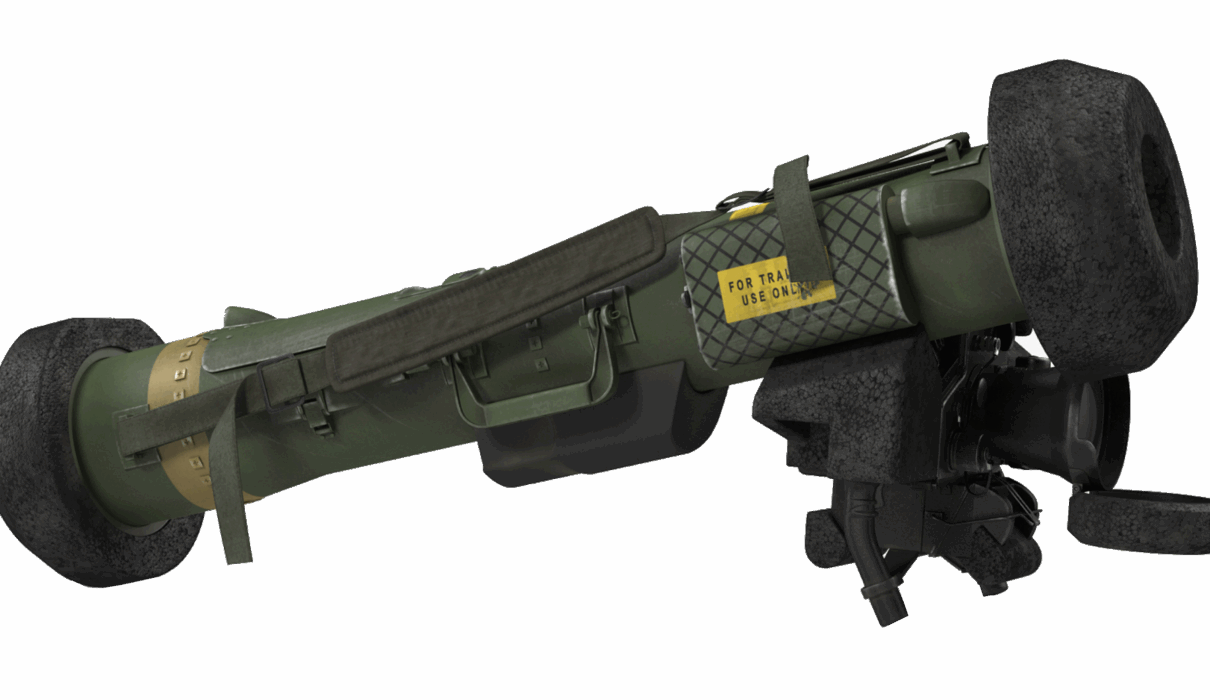Introduction
In a grim discovery that has sent shockwaves through Sudan, the Sudanese Armed Forces (SAF) recently uncovered a vast stockpile of U.S.-manufactured FGM-148 Javelin missiles and other advanced weaponry in the Al-Salha area of Omdurman. The Rapid Support Forces (RSF), notorious for their atrocities against civilians, had fled the area shortly before the SAF raid. What the military unearthed was not merely an arms cache—it was a testament to the international community’s failure, particularly the complicity of powerful nations and their proxies in fueling a genocidal war.
The Javelin missiles—designed by Raytheon and Lockheed Martin—are not mere tools of war; they are precision-guided death machines worth $178,000 each, according to the Pentagon’s 2021 budget. Intended to pierce the armor of Russian tanks, these weapons are now being used to terrorize unarmed civilians in Khartoum, Omdurman, and Bahri. And yet, the world watches in silence as these crimes unfold.
Javelins in Sudan: From U.S. Military Aid to Tools of Mass Destruction
The FGM-148 Javelin is among the most advanced shoulder-fired anti-tank weapons in the world. Designed for NATO militaries, it has played a significant role in the Russia-Ukraine war. However, its presence in the hands of the RSF—a paramilitary group accused of ethnic cleansing, mass rape, and systematic war crimes—raises urgent and alarming questions.
The SAF’s discovery of these weapons in Omdurman follows a similar seizure of 300 Javelin units in Jebel Aulia. Both incidents show a disturbing pattern: large quantities of top-tier American weaponry, far beyond what any non-state actor could legitimately acquire, are appearing in RSF stockpiles across Sudan.
These weapons are not being used in battlefields against opposing armed forces—they are being deployed against civilians. RSF units have been using such equipment to level residential neighborhoods, destroy infrastructure, and kill civilians attempting to flee violence.
The UAE’s Role: A Proxy Pipeline of American Arms
How did these weapons get to Sudan? The answer lies not in Khartoum or Washington, but in Abu Dhabi.
The United Arab Emirates, a U.S. ally with deep military ties to Washington, has emerged as the key facilitator of RSF armament. Numerous credible reports and investigations have linked the UAE to the shipment of arms—including American-made weapons—to Sudan’s RSF through clandestine airlifts and supply chains. Cargo planes have been tracked flying from UAE airbases to RSF-controlled areas in Sudan, sometimes disguised as humanitarian aid flights.
Despite these revelations, there has been no meaningful action from the United States, NATO, or the broader international community. The Biden administration, while vocal about supporting democracy and condemning war crimes in Ukraine and Gaza, has remained disturbingly silent on the UAE’s support for a group the U.S. once sanctioned for involvement in genocide in Darfur.
Crimes Against Humanity: RSF’s Brutality with Foreign Weapons
The use of advanced American weapons by the RSF has dramatically escalated the scale and precision of their atrocities. In Al-Salha, Omdurman, and other regions, civilians recount horror stories of Javelin missiles obliterating homes without warning. In some cases, entire families have been incinerated in their sleep.
American-made 155mm artillery—also seized from the RSF—has been used to shell hospitals, schools, and shelters. These are not battlefield targets; they are civilian sanctuaries turned into mass graves.
Verified video footage shows RSF fighters armed with M4 and AR-15 rifles—standard U.S. military firearms—executing civilians, looting homes, and patrolling urban neighborhoods. These weapons, unmistakable in design, serve as a chilling reminder of where they came from—and how far global accountability has fallen.
International Silence: A Hypocritical and Deadly Blind Eye
While the U.S. State Department continues to issue generic statements about the need for peace in Sudan, it has failed to challenge its ally, the UAE, on its material support for the RSF. Even more damning, the United States has not launched any meaningful investigations or sanctions into the illegal transfer of American arms into Sudan’s conflict zones.
The United Nations has similarly faltered. Despite extensive documentation of RSF atrocities and repeated pleas by Sudanese human rights groups, the Security Council remains paralyzed. This inertia is rooted in geopolitics, oil interests, and the unwillingness to hold powerful Gulf actors accountable.
European nations, too, have remained largely silent—prioritizing trade deals and counterterrorism cooperation with the UAE over human rights and justice in Sudan.
What Needs to Be Done: A Call for Immediate Global Action
The silence must end. The world must demand:
- A full investigation into how American weapons reached the RSF, including satellite tracking of cargo flights from the UAE and audits of U.S. military aid and sales.
- Immediate sanctions against individuals and entities in the UAE involved in arming the RSF, including travel bans, asset freezes, and public condemnation.
- An international tribunal or mechanism to investigate and prosecute war crimes in Sudan, focusing on the use of foreign-supplied weapons in attacks on civilians.
- Public accountability from the United States government—specifically Congress and the Pentagon—on arms control failures and UAE relations.
- Support for Sudanese civil society, media, and resistance forces, who are documenting these crimes at great personal risk.
Conclusion: The Price of Inaction
Every Javelin missile fired into a Sudanese neighborhood, every American rifle used to gun down a civilian, and every artillery shell that flattens a hospital bears the fingerprints of international neglect.
This is no longer just a Sudanese issue. It is a global crisis, a stain on the conscience of nations that preach human rights while enabling their allies to commit atrocities.
The Sudanese people deserve more than thoughts and prayers. They deserve justice, accountability, and an international community that prioritizes lives over weapons contracts.
Until that day comes, every silence is complicity.


